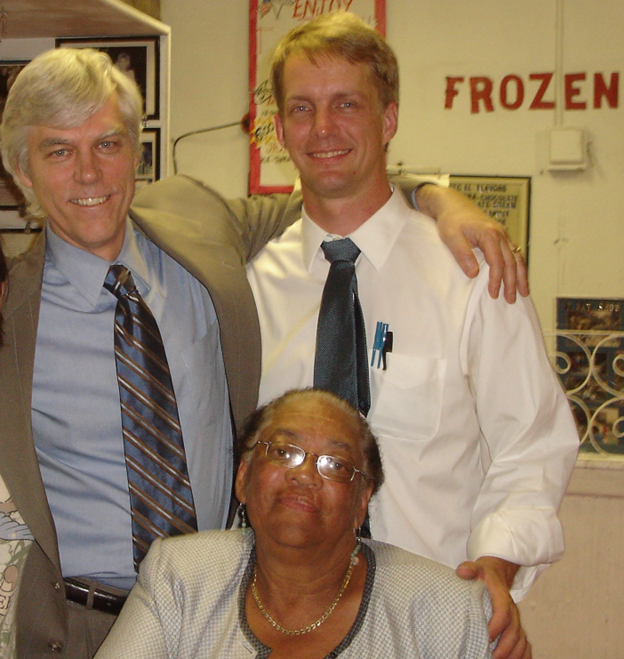During my first year teaching a community engagement class at UCLA, I had a student from New Orleans from whom I learned a lot. Hurricane Katrina had destroyed his neighborhood, and when he went back home, he was asked to help lead mental health recovery efforts post-Katrina. I supported him through daily phone calls, and I went to New Orleans once a month for a number of years to assist him with recovery.
We took the collaborative care model, a team-based approach to mental health care shown to be effective in under-resourced communities, and the whole city worked to expand that model by involving community health workers and faith leaders and others trained in psychological first aid in the recovery process. Based on that work in New Orleans, the LA County Department of Public Health led an effort to help train communities in preparing for and responding to disasters – from floods to fires. So much of the work of disaster recovery is about taking lessons learned and building on them or applying them in new contexts.

Dr. Wells in New Orleans in 2008, assisting in mental health recovery from Hurricane Katrina. He is pictured with his student from New Orleans and one of his colleagues, the late Loretta Jones, an expert in community engagement.
Several policy leads, such as Gavin Newsom and former heads of FEMA, have declared that the Los Angeles wildfires rank as one of the largest city/county disasters in U.S. history. Over 150,000 people had to leave their homes, their houses of worship, and their schools – and those people still had to show up to work as they grieved what they left behind. Because of that displacement, I am chairing a panel session on the role of psychiatry and disaster resilience in the workplace with several of my APA colleagues at the Annual Meeting on May 19, 2025. The session focuses on employers and employees, but there’s enormous diversity within those groups, and so we have several workplace mental health experts joining us on the panel. Together, we will apply lessons learned from past disasters to inform and improve our approach to recovery from the LA wildfires.
People tend to experience an increase in mental health challenges after disasters, especially large ones like the LA wildfires. Some folks develop new conditions, like depression and post-traumatic stress, and there can also be an exacerbation of existing mental health problems. When your mental landscape is changing, it can be really difficult to get through the day at work, so it’s crucial that employers of all kinds understand the impact this disaster is having on their teams’ inner lives and get resources to support them.
Plus, the financial problems that result from a disaster – such as getting your insurance money from different sources or rebuilding your home – can take years to resolve. People are in a less secure, less well-known environment after a disaster, and that can be damaging to mental health as well. Workplace leaders and managers need to consider that the effects of disasters can remain with us for many months and even years.
Particularly with an event like Katrina or the LA fires, everyone is affected. Many places lose their business. Employees are stressed out: what’s going to happen to their jobs? And certainly for healthcare providers, among other professions, there’s increased demand for services. Here in LA, Pacific Clinics lost two of their clinic locations in the fires, so the employees are both dealing with their own situations and the needs in the community. The healthcare employee experience during disaster recovery is a topic of its own, which we’ll cover at our session.
Many employers’ first instinct after a disaster is to host a special event to try to support employee morale – but what if someone starts crying at the event? Who will be there to take them aside, counsel them, and give them resources? Having to comfort people can be very stressful in itself, so having skill sets to understand and be able to step in when others are falling apart is always helpful, however you end up applying those skills. For example, losing someone very close to you is also a disaster. Having that skill set that helps you provide emotional care and sit with grief is helpful in such a wide variety of circumstances.
This work can’t be accomplished by just a few well-resourced groups; it takes all of us to heal. Instead of offering mental health resources to hospital CEOs and hoping they’ll trickle down, our job is to disseminate them in unexpected ways, through trusted community members like daycare providers or barbers. Each and every Angeleno has a role to play to facilitate a full recovery.
Please join me and my colleagues, including the APA Foundation’s Center for Workplace Mental Health team, on May 19 at 1:30 p.m. for The Role of Psychiatry in Creating Workplace Resilience in the Face of Disaster.
